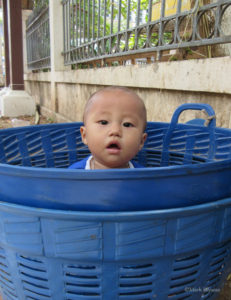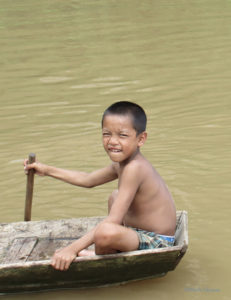
Live Encounters Magazine September 2021
First published in Divyadaan: Journal of Philosophy and Education
published by Divyadaan: Salesian Institute of Philosophy, Nashik, India.

Insaniyat[1] – Fraternity in Diversity
“For it is in giving that we receive.” ― St. Francis of Assisi
Abstract
The world is facing unprecedented hardship due to the pandemic, hate and violence in all forms. Rising intolerance, Jand misinformation in the media, where the rich get richer and poor becoming poorer, is threatening to tear societies apart. This groundswell of disturbance has been witnessed in the last one year with devastating effect. In these turbulent times, fraternity surprisingly exists in diversity. People of Faith are reaching out to assist the less fortunate irrespective of their colour, caste or religion. Their work is reflected in their insaniyat. Perhaps it would be these very people who will save humanity from the brink of self-destruction.
Introduction
In the mid-1970s I was studying in St. Xavier’s College, Calcutta, in Pre-University, the mandatory one year before admission to graduate studies. And it was here that I had met many enlightened Jesuit priests, one in particular was Vice Principal Father Huart. One day Father Huart requested me to accompany a priest, who had arrived from the Vatican and was new to the city. I was to show him to his hotel a short distance from the college on Park Street. So off we went.
On the way we passed an emaciated beggar lying on the pavement. Without any hesitation the priest turned back, picked up the beggar in all his filth and instructed me to hail a taxi to take us to Mother Theresa’s Home for the Destitute. A few minutes into the drive the beggar died. The priest, who had cradled the beggar’s body in his arms, prayed softly. There was much sadness in his voice. When we arrived at the Home the nuns gathered the broken lifeless body, cleaned it and covered the man with fresh linen. The reverence with which they did this startled me. Then they all began to pray and sing. Standing next to the priest was Mother Theresa. Her face lit up with an aura of pure insaniyat.
There was never any talk of caste or religion of the dead beggar. His body was accepted. He was accorded dignity in death. Mother Theresa’s actions reflected her Faith. I, on the other hand lacked all these qualities.
The actions of the priest and the nuns at the Home are the embodiment of insaniyat…how we should treat one another regardless of our social position.
This humbling experience left an indelible impression and its effect can still be felt whenever one is confronted with an existential dilemma brought on by a passing bout of alienation of self and the distancing from shared values.
Much has changed since the mid-1970s. The world is now caught in a web, the internet, which connects all and entraps all. And this web is fed by billions of people, each person spewing all kinds of opinions, misinformed and uninformed, that appear to be growing in insidiousness – us and them, us vs. them or the now popular trend – me-me. This self enforced compartmentalisation of peoples is destroying the ancient natural bridges between cultures and religions. The self incarceration of freedom of thought is fast becoming a reality.
Where do we go from here?
Here are a few thoughts.
I believe that there are six basic pillars of society: Love, Respect, Non-violence, Forgiveness, and Charity with the cornerstone being Faith.
Love and Respect
Love and respect are two sides of the same coin. How can we love another if we don’t respect the person? How can we do this if we don’t love and respect ourselves, our bodies?
It is easy to succumb to the baser instincts like hatred and violence. Reason is not an option because many are used to readymade fixes for all their ills. We hate because we fear. We resort to violence because we have dispensed with the cumbersome process of reason. We have taken refuge in our perceived notions of cultural values, twisted to suit individual needs.

The many variants of love and respect originate from our upbringing. At birth a new born is given a slap and from then on parents ‘train’ their children to obey their commands. There is always a rider – if you don’t do this or that then you will be punished. Or, in growing instances new age parents indulge their children to a point that crosses the sacred line of parent teacher-child relationship resulting in the child becoming precocious and self-centred. This is more pronounced in single child families.
And when this child becomes an adult, society is faced with yet another aberration.
Love and respect must begin in the family, the nucleus of a society/state. Parents are custodians of society and their contribution to love and respect is imperative for its very survival. They are the foundational teachers. And they are failing now for they are succumbing to the new form of liberalism that is decimating all free thought. You can’t say this, you can’t say that. All forms of ‘political correctness’ including the banning of a growing number of words and phrases is hamstringing free and fair debate.
Perhaps this liberalism is not really liberalism but another form of fascism? Could it be that we are witnessing the birth of another vicious movement that will engulf the world in mindless war, this time a war for hearts, minds and souls?
We must begin with love for this will remove all shackles of age-old prejudices and hate.
Nelson Mandela couldn’t have said it better – “No one is born hating another person because of the colour of his skin, or his background, or his religion. People must learn to hate, and if they can learn to hate, they can be taught to love, for love comes more naturally to the human heart than its opposite.”[2]
Unfortunately, amidst the COVID pandemic the voice of love, of respect, of selfless duty is overshadowed by the rising tide of jingoism and a disturbing trend of exceptionalism on one hand and rising social anarchy on the other. The pricing and cornering of the vaccine market, the enforcement of lock down laws without regard to the common people’s welfare, their day-to-day survival, presents a disheartening image of the burgeoning power and greed of the exceptionals.
Can fraternity survive in this adversity?
Non-violence & Forgiveness
Non-violence in thought, word and deed is an ideal state. But when we add the human factor numerous distortions occur, violence in various forms, which can only be resolved by the simple mechanism of forgiveness. But how do we forgive if we are conditioned from childhood to be exceptional by colour, caste, religion or country? How do we reach across the aisle to embrace a perceived adversary?
All these factors contribute to the present trends – suspicion of the pandemic and the distrust of authority, fear of a conspiracy of an insidious emerging deep state new world order, and upsurge of right wing nationalism.
With utter disregard for others’ lives, people without face masks have taken to the streets to protest their individual rights, thus endangering millions of lives.
Meanwhile medical workers around the world are fighting the deadly battle of saving lives. Thousands of them have already died in the process, exposed to the lethal virus.
But this has not stopped politicians and others from using this for their own selfish purposes to attempt one-upmanship on opponents, thereby creating further schisms in society.
We are witnessing these developments across the world.
Resorting to violence, physical and verbal, to achieve one’s purpose has now become the rule rather than the exception.
Again, it is conditioning that has blinkered many from seeing a wide-angle picture of what ails society.
Why is it that we cannot remove these blinkers? Is it fear of the unknown or the reluctance to accept the truth of reality, an unsettling reality that we must discard to overcome that which feeds our baser instincts and accept unequivocally the wholesome goodness of non-violence and forgiveness?
Perhaps the heavy burden of historical wrongs contributes to this fear. The litany of ‘we must not forget, we must always remember’ continues to fuel hate and promotes a dishonest rendition of Truth.
If we continue to teach our children about the historical wrongs how are we going to be able to create a just society, which is non-violent and forgiving?
What we are witnessing today in the media and social media is just this – raucous cries for righting historical wrongs, stretching it to a point where we experience reverse discrimination, thereby reigniting fires of hate and suspicion and starting new ones.
A society creates its own government, a government elected by the people to ensure the smooth and fair functioning of the state. The present state of affairs is alarming. Various societies are at the mercy of their governments that in turn are overshadowed by the power of the transnational corporations.
Increasingly, these elected governments have been digressing from their duty to serve the people. The disdain of exceptionalism exhibited by many in power is truly disheartening. It is as if they have shrugged off the moral responsibility of caring for the people in all aspects during the pandemic. Instead of engaging the people, they are treating them as juveniles who don’t understand the pandemic and thus need laws to impose monetary fines for transgressing the pandemic restrictions. These actions have encouraged volatile elements in societies to create violent confrontations with the law.
Shouldn’t people reach out to support one another, to make peace through non-violent action and seek forgiveness in the event of transgressions without the overbearing interference of big brother?
Is this a deluded suggestion?
Charity
The essential ingredient of a healthy society is charity – The will of the people to share a part of their wealth with others who are less fortunate so that everyone has shelter, food, clothing, basic education, and more.
The pandemic has just added to the woes of the hungry and homeless and those who have lost their jobs. The news report titled “A Tenth of the World Could Go Hungry While Crops Rot in Fields” is a telling reminder of the impact of the pandemic.[3]

Further, the poor have become poorer and the rich, richer. In fact, the rich have increased their wealth to $10.2 trillion dollars during the pandemic.[4]
Are these rich people akin to profiteers during a war?
The sinkholes of disparities are suddenly appearing everywhere. This could result in social revolution. The rumbling of discontent, rightly so, can be seen and heard across cities in the west.
What if the rich shared their profits from the pandemic with the poor?
What if the rich followed the example of MacKenzie Scott (ex-wife of Amazon founder Jeff Bezos), author and philanthropist, who has given away more than $4 billion in the last four months?[5]
This may be a pittance in comparison to her total wealth but at least it is a start.
Perhaps charity begins at home. Could it be that we must first begin to share what we have with our family, relatives and friends? And once we have achieved a level of honesty, then reach out to others to support, possibly our neighbours and those who live on our street?
If we don’t share a part of the excess wealth that we have, how can we hope to build a just society?
Faith
In the late seventies on the Old Cadell Road, Mumbai, just short of St. Michael’s Church (Mahim) was a mosque (it is still there). The road was lined with a few restaurants that prepared dal and chapattis for the homeless and those living in slums. The deal was quite simple – anyone could buy chapattis and dal (heavily discounted) to feed the lines of hungry people sitting patiently outside the small restaurants with aluminium plates in hand. Often I would see the rich drive up in their cars and hand over small bundles of currency notes to the restaurant staff who would immediately serve the equivalent in piping hot dal and chapattis to the hungry. This was a social arrangement between humans to care for other humans regardless of their caste or religion.

It was a beautiful celebration of insaniyat.
I do not know if this practice still exists. But this I know, many religious organisations offer food, shelter, education and more to those who are less fortunate.
And this, for me, is Faith in all its magnificence.
This goes back to my encounter with a Catholic priest and Mother Theresa in Kolkata decades ago. It was their Faith that gave them insaniyat. It was their Faith that did not blinker them from being selective in their approach to humanity. In fact it was their Faith that enlightened them to do what they did without seeking any reward or accolade.
Perhaps it will be Faith that will bring us all back together as one.
In the meantime, fraternity is all that we have in diversity to survive in a world fragmented by violence, hate and the pandemic.
It will be people of Faith, I hope, that will continue to reach out across the great divide to offer succour for the less fortunate. And through this, perhaps, bring about permanent peace between the peoples of the world.
[1]The title of this essay is an Urdu word which means humanity, to have humanity.
[2]https://www.goodreads.com/work/quotes/2501119-long-walk-to-freedom-the-autobiography-of-nelson-mandela Long Walk to Freedom: The Autobiography of Nelson Mandela.
[3]See https://www.bloombergquint.com/global-economics/hunger-is-threatening-to-kill-more-people-than-covid-this-year.
[4]See https://www.theguardian.com/business/2020/oct/07/covid-19-crisis-boosts-the-fortunes-of-worlds-billionaires.
[5] See https://www.npr.org/2020/12/16/947189767/mackenzie-scott-has-donated-more-than-4-billion-in-last-4-months.
© Mark Ulyseas
Mark Ulyseas has served time in advertising as copywriter and creative director selling people things they didn’t need, a ghost writer for some years, columnist of a newspaper, a freelance journalist and photographer. In 2009 he created Live Encounters Magazine, in Bali, Indonesia. It is a not for profit (adfree) free online magazine featuring leading academics, writers, poets, activists of all hues etc. from around the world. March 2016 saw the launch of its sister publication Live Encounters Poetry, which was relaunched as Live Encounters Poetry & Writing in March 2017. In February 2019 the third publication was launched, LE Children Poetry & Writing (now renamed Live Encounters Young Poets & Writers). In August 2020 the fourth publication, Live Encounters Books, was launched. He has edited, designed and produced all of Live Encounters’ 221 publications (till September 2021). Mark’s philosophy is that knowledge must be free and shared freely to empower all towards enlightenment. He is the author of three books: RAINY – My friend & Philosopher, Seductive Avatars of Maya – Anthology of Dystopian Lives and In Gethsemane: Transcripts of a Journey. www.amazon.com/markulyseas

